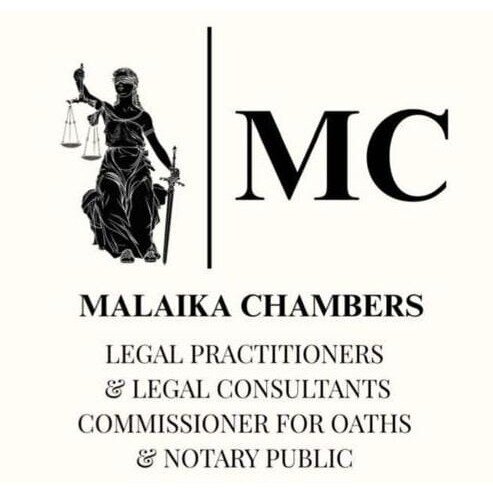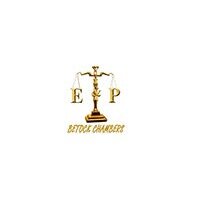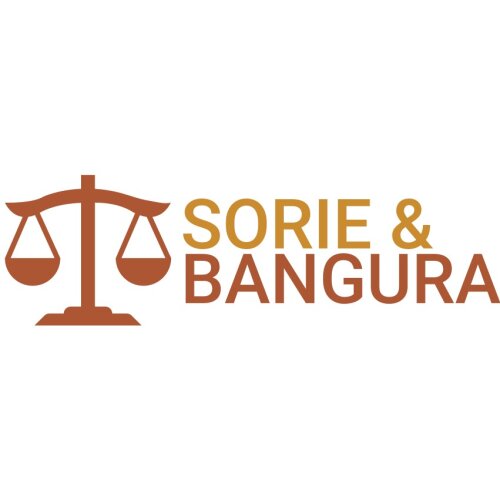Best Government Relations & Lobbying Lawyers in Sierra Leone
Share your needs with us, get contacted by law firms.
Free. Takes 2 min.
Or refine your search by selecting a city:
List of the best lawyers in Sierra Leone
About Government Relations & Lobbying Law in Sierra Leone
Government relations and lobbying in Sierra Leone involve the strategic management of relationships between government entities and external stakeholders such as businesses, organizations, and individuals. This field encompasses activities aimed at influencing public policy and decision-making processes to favor specific outcomes. In Sierra Leone, lobbying is gradually becoming recognized as a legitimate part of political engagement and advocacy. However, the regulatory framework governing these activities is still developing, with an increasing emphasis on transparency and ethical conduct.
Why You May Need a Lawyer
Individuals or organizations may require legal assistance in government relations and lobbying for several reasons:
- Compliance: Navigating the local laws and regulations can be complex, and legal guidance ensures adherence to these rules, avoiding potential penalties or legal issues.
- Strategic Planning: Lawyers experienced in government relations can help devise effective strategies to influence policy decisions and understand governmental processes.
- Drafting and Reviewing Agreements: Engaging with government entities often involves various contracts and agreements, which require expert legal drafting and review to protect your interests.
- Ethical Concerns: To avoid conflicts of interest and maintain ethical standards, legal advice is valuable to ensure that lobbying efforts remain transparent and above board.
- Dispute Resolution: In cases of disputes with governmental bodies or between stakeholders, legal intervention can help in negotiations, arbitration, or litigation if necessary.
Local Laws Overview
The legal landscape for government relations and lobbying in Sierra Leone is governed by a combination of constitutional provisions, statutory laws, and regulatory guidelines. Key aspects include:
- Transparency and Disclosure: There is an evolving expectation for lobbyists to disclose their activities and funding sources to ensure transparency in their dealings with government officials.
- Anti-Corruption Measures: Laws like the Anti-Corruption Act 2008 emphasize the importance of ethical conduct and integrity in lobbying activities, with stringent penalties for violations.
- Public Policy Advocacy: While there is no specific lobbying code, activities aimed at influencing public policy require adherence to public order and national interest considerations.
- Registration Requirements: While not comprehensive, certain lobbying efforts may necessitate registration with relevant governmental bodies to ensure accountability.
Frequently Asked Questions
What is lobbying?
Lobbying refers to activities aimed at influencing decision-makers in the government to implement policies or take actions that align with specific interests or causes.
Is lobbying legal in Sierra Leone?
Yes, lobbying is legal in Sierra Leone, but it is subjected to regulatory frameworks that emphasize transparency and ethical conduct.
Do I need to register as a lobbyist?
While formal registration requirements are not yet comprehensive, certain lobbying activities may require you to register with relevant governmental bodies.
What are the ethical considerations for lobbyists?
Lobbyists must act transparently, avoid conflicts of interest, and comply with anti-corruption laws to ensure ethical lobbying practices.
How can a lawyer assist in government relations?
A lawyer can provide strategic advice, ensure compliance with laws, draft necessary documentation, and represent you in disputes.
What are the risks of non-compliance?
Non-compliance with legal and ethical standards can result in penalties, damage to reputation, and legal consequences for individuals or organizations.
Can foreign entities engage in lobbying in Sierra Leone?
Yes, foreign entities can engage in lobbying, but they must comply with local laws and respect national interests.
What laws govern lobbying in Sierra Leone?
Lobbying is influenced by various laws, including the Anti-Corruption Act 2008, and evolving policy guidelines from government bodies.
Are there penalties for unethical lobbying?
Yes, there are penalties for unethical lobbying practices, including fines and potential imprisonment as stipulated in anti-corruption laws.
What steps should I take to ensure compliance?
Seek legal advice, stay informed about regulations, disclose activities transparently, and adhere to ethical standards.
Additional Resources
Here are some resources and organizations that can provide further assistance:
- Anti-Corruption Commission: Responsible for enforcing anti-corruption laws and promoting transparency.
- Sierra Leone Bar Association: Provides access to legal professionals specializing in government relations and lobbying.
- Chamber of Commerce: Offers resources and guidance on engaging with businesses and governmental entities.
- Policy Advocacy Organizations: Engage with NGOs that focus on public policy advocacy and transparency initiatives.
Next Steps
If you need legal assistance in government relations and lobbying, consider the following steps:
- Conduct Research: Familiarize yourself with local laws and practices relating to lobbying.
- Consult a Lawyer: Reach out to a lawyer specializing in government relations to understand your legal obligations and strategies.
- Prepare Documentation: Gather any relevant materials and records that might be needed to support your lobbying activities.
- Engage Responsibly: Start engaging with governmental entities and other stakeholders in compliance with legal and ethical guidelines.
- Monitor Developments: Stay informed about changes in laws and policies that could affect your lobbying efforts.
Lawzana helps you find the best lawyers and law firms in Sierra Leone through a curated and pre-screened list of qualified legal professionals. Our platform offers rankings and detailed profiles of attorneys and law firms, allowing you to compare based on practice areas, including Government Relations & Lobbying, experience, and client feedback.
Each profile includes a description of the firm's areas of practice, client reviews, team members and partners, year of establishment, spoken languages, office locations, contact information, social media presence, and any published articles or resources. Most firms on our platform speak English and are experienced in both local and international legal matters.
Get a quote from top-rated law firms in Sierra Leone — quickly, securely, and without unnecessary hassle.
Disclaimer:
The information provided on this page is for general informational purposes only and does not constitute legal advice. While we strive to ensure the accuracy and relevance of the content, legal information may change over time, and interpretations of the law can vary. You should always consult with a qualified legal professional for advice specific to your situation.
We disclaim all liability for actions taken or not taken based on the content of this page. If you believe any information is incorrect or outdated, please contact us, and we will review and update it where appropriate.
Browse government relations & lobbying law firms by city in Sierra Leone
Refine your search by selecting a city.













